
In the world of international trade where various business activities are involved, there is great importance of comprehending pricing terms of doing business. One of the most frequently utilized ones is the term FOB price that is an abbreviation of the term Free on Board. This detailed book will talk of all the aspects of FOB pricing, details and consequences it has on your international trade activities.
Shenzhen Guanwutong International Freight Forwarding Co., Ltd. ( GWT Worldwide ) is a professional logistics service provider which does global freight forwarding, supply chain solutions as well as cross-border e-commerce logistic company. Experts in pengangkutan udara, sea freight, China-Europe railway transportation, international express services, customs clearance and Amazon FBA transportation, GWT Worldwide will help you to deliver your goods safely and avoiding violations using logistics technology and an international network of reliable partners insurance costs.
What Does FOB Price Mean in International Trade

Free on board (FOB) price is a basic shipping expression which determines the point where a shipment disputing ownership and obligation of goods is maneuvered, between seller and buyer. A seller who charges and FOB price is stating that the cost and responsibilities will be taken until the goods are placed on the carrier ship at the port of origin freight costs.
FOB price meaning does not only go down to mere computation of cost, but it also very well provides clear distinction of the liability, risk and liability between the trading parties. When the FOB terms are involved, the seller pays all expenses, risks, and duties till the moment of goods passing through the ship at the point of the named shipment. After this transfer, the goods can solely be at the care of the purchaser as far as cost of transportation, insurance covers and even losses or damages to the products are concerned.
Such a pricing system will bring clarity and minimize conflict among trading partners at the international level because clear guidance on transfer points will be set. Under the FOB price, the seller is bound to ensure that it delivers goods to the port, as well as take care of the exportation of documentations and proper loading into the shipping vessel shipping process. Meanwhile the responsibility of freight charges, import duties, insurance and all the costs incurring to land the goods traveled across the port of origin to the final destination will be that of the buyer.
Historical Background and Evolution of FOB Terms

FOB pricing origin is long established in the history of the trades in the sea where goods were physically crammed over the rail of a ship. The term Free on Board started out as a literal expression of when the cargo moved over the rail of the vessel as this was the exact point that the responsibility was handed over to the buyer freight forwarder.
During several centuries of the elaboration of international trade, the FOB terms have been modified to suit contemporary shipping activity and containerization. Although the essence of the principle has not changed, it has been applied to the realities of current logistics operations where in many instances the products being shipped get loaded in containers, and not as loose pieces over the rail of a ship significant cost savings.
The International Chamber of commerce (ICC) has been instrumental in harmonizing FOB conditions with Incoterms sets of rules and these are maintained and updated economically every 3 years according to the changing trade cycles. All these standardizations maintain consistency on the meaning of FOB across the countries and type of trading systems, hence minimizing misunderstanding and possible conflicts when dealing with international trade freight prepaid.
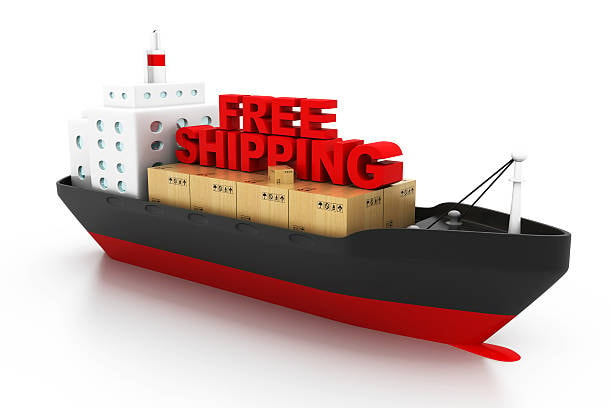
Today FOB terms remain as a backbone to international trade agreements whose basis has been a sure way of establishing cost, risk, and responsibility to trade globally free alongside ship. The development of the FOB pricing system is an indication of the dynamism of international trade without losing important principles that ensure a smooth operation of the business.
Different Types of FOB Pricing Structures
The FOB document consists of various variations that traders need to comprehend so that they can maneuver well in global trade freight collect. These can be summarized into two fundamental categories, namely FOB Origin and the FOB Destination which have distinct implication on cost allocation and risk transfer.
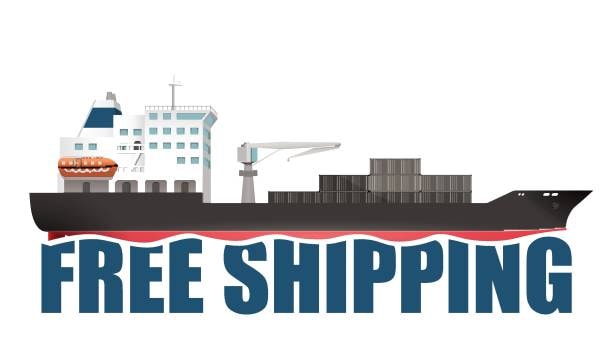
FOB Origin, or FOB Shipping Point, steadfastly projects the responsibility of acquiring the goods sold, on the buyer as soon as they leave a position of the seller. When going by this kind of arrangement the buyer becomes the owner and liable when goods leave the premises of the seller and which then the buyer is supposed to pay the cost of goods of its freights, insurance and the possible damages it might be causing to goods on the way.
Under FOB destination, liability stays with the seller because he owns and is liable till the goods reach a specified destination of the buyer. This organization offers more assurance to buyers although it usually costs more because the sellers have to incorporate the transportation cost and risks in their pricing buyer assumes.
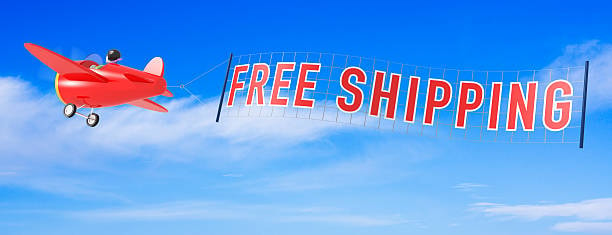
There are geographic differences as well, e.g. FOB Port of Origin and FOB Vessel, where the specific locations of transfer and obligations are pointed out. One must embrace these differences in the calculation of costs and management of risks in international trade transactions buyer’s location.
How FOB Pricing Affects International Shipping Costs
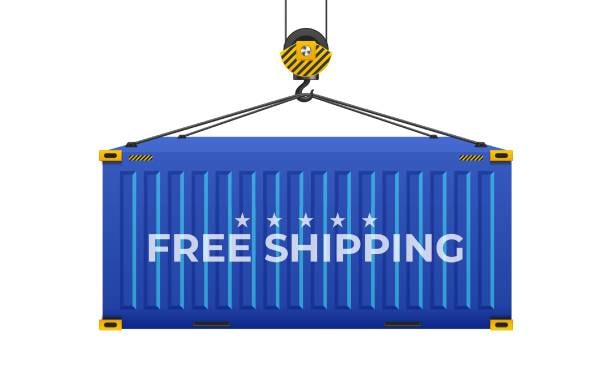
FOB pricing has immense effects on the general pricing layout of overseas shipping contracts. When the sellers refer to FOB prices, the buyer needs to estimate other costs such as pengangkutan laut, the port rates, custom duty, insurance, and inland delivery to arrive at the total rundown prices international shipments.
Ocean freight constitutes the most enormous portion of post FOB expense and it depends on the shipping lanes, availability of ships, shipping seasons and fuel prices. The buyers need to obtain competitive freight charges and learn how various shipping lines charge their service so that they optimize the overall cost of transport.
There are port charges and terminal handling charges as added expenses to be taken into account by the buyer of that FOB and compared to other offered FOBs. These expenditures considerably differ in various ports and may consist of a container handling charges, documentation costs, security surcharges, and the port stores costs..

When insurance is FOB, the insurance premium is charged to the buyer and therefore one should be very careful when determining the value of the cargo, and shipping as well as viewing the risks involved. Depending on the level of risk and the nature of the cargo, buyers have can make the choice between basic carrier liability and the comprehensive marine-inspected insurance cover.
Legal Implications and Responsibilities Under FOB Terms
FOB terms provide definite legal agreements, which determine obligations, rights and liabilities of the parties involved in international trade activities. Knowledge of such legal implications is important in the prevention of disputes and harmonious running of the business.
The legal responsibility of sellers under FOBs is to have strict legal requirements with regards to proper packaging, the export licenses, origin clearance of customs and delivery of merchandise to the point of shipment. Noncompliance with the responsibilities may lead to the legal liability and payment of fines.
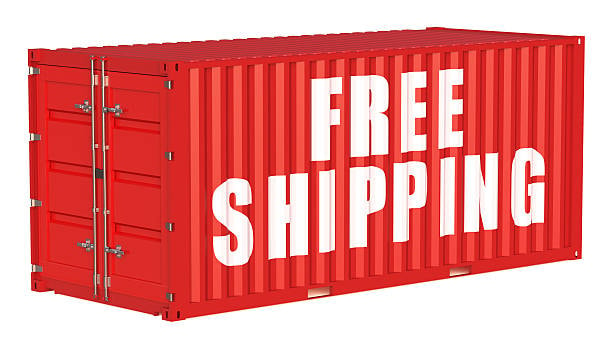
The stated point of transfer is regarded as the legal ownership and responsibility of the goods to be taken by the buyers who bear all costs of losses, damages or legal touches that occur in further transportation process. Such shift of liability implies that buyers have proper insurance cover and know the rights to the conventions in the international shipping.
Requirements under FOB as far as documentation is concerned incorporates bills of lading, commercial invoices, packing lists and export declarations. It is important to have proper documentation that will be used in case of any disputes or claims and a legal approach in relation to the agreement between the two parties.
FOB vs Other International Trade Terms (Incoterms)
There are several other International Commercial Terms (Incoterms) of which FOB terms are only one of the options that traders can use. The comparison between FOB and the rest of popular terminologies can assist the companies in selecting the most suitable scheme in regard to their own necessities.
CIF ( Cost, Insurance, and Freight ) terms figure the cost of insurance and the cost of freight into the seller price, it gives the buyer a more complete pricing system though at a generally more overall higher price. The setup is convenient but buyers will have less control over mode of shipment and insurances.
EXW (Ex Works) terms utilize the buyer with the greatest responsibility since they are required to do all the transportation details after leaving the doors of the seller. This gives the buyer utmost control over logistics although it demands good knowledge of proceedings relating to export and the specifications needed to ship internationally.
The other extreme is DDP (Delivered Duty Paid) terms according to which the sellers bear the entire responsibility i.e. incorporate all the costs of import duties and final delivery. Such system means a lot of convenience to buyers though it normally ends up being at very high prices.
Calculating Total Cost Under FOB Pricing
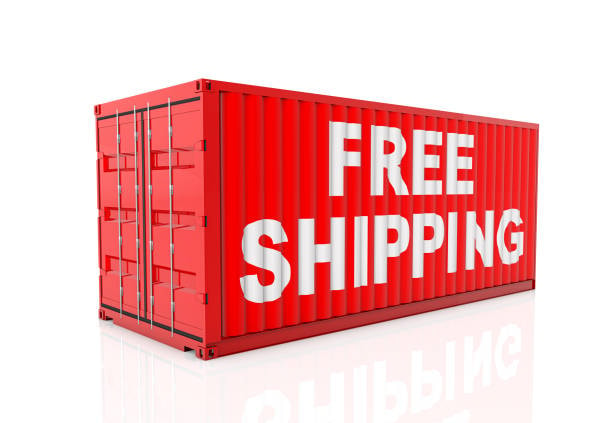
In the FOB pricing, accurate cost will be calculated when there is full knowledge of all other costs that buyers will be required to pay. To give a realistic estimate of budget, the calculation of total landed cost must have several factors aside the initial FOB price.
The price of ocean freight transportation depends on the routes of shipping, the type of container, the changing prices of demand in seasons and the fuel prices. To keep the rates and the service competitive, buyers are advised that they must get multiple quotes between shipping and freight forwarders and shipping lines.
Port and terminal costs comprise container charges, documentation costs, security surcharges and possible storage costs. These costs are largely different among ports and may affect the overall transportation costs accordingly.
The taxes and duties paid on imports are based on the category that the products belong to, country of origin, and the countries to which the products need to be taken. Purchasers should study the appropriate duty rates, and how various trade agreements could influence their costs of importation.
Risk Management in FOB Transactions
It is important to be able to know the exposures, mitigation strategies in case they arise so as to be able to manage more when using FOB terms. This is because buyers take huge risks when the goods are out of the control of the seller and it is therefore important to plan properly.
In ocean transportation, marine insurance comes in as an important service in the protection of value of cargo. Depending on the cargo nature and the level of risk they are willing to undergo, buyers are required to consider various coverage such as total loss, general average coverage and particular average cover.
There is also a threat- the fluctuation of currencies that may also influence a high rate of transaction costs in a case where the payments are in foreign currency. Buyers must look at the strategy of hedging or bargain out the terms of currency such that little exposure is exposed to the negative movement of exchange rate.
Shipment or destination country political and economical risks can hamper the regular patterns of trade and add to the expenses also. Buyers are advised to watch geopolitical events and where practicable have alternative chain supply sources.
Documentation Requirements for FOB Shipments

The key to successful FOB transactions is proper documentation which does not only confirm its legal compliance but also makes the process of customs clearance easier. Knowing what documents are needed and what they are used for eliminates the possibility of causes of delays and extra costs.
Bills of lading are very important documents that constitute ownership change and shipping orders. Purchasers have to comprehend various kinds of bills of lading and what they have to know concerning cargo shipment and passing title.
Customs Commercial invoices are supposed to give the right description of the terms of the transactions, the products and values. Appropriate invoicing will eliminate the need to wait at customs and will eliminate a mistake in calculating duties.
Export documentation such as export license, shipment instructions, certificates of origin should be duly filled to ease the access of custom clearance at the place of origin. These are documents that the sellers normally deal with on terms of FOB but buyers are supposed to ensure that they are done with it.
Common Mistakes and How to Avoid Them
There are a number of traps that many international traders find themselves in when it comes to FOB pricing that may even lead to unnecessary and unforeseen expenditures and delays or legal issues. Being aware of these pitfalls would enable businesses to avoid the pitfalls.
Poor standards of insurance are a key threat to the buyers on terms of FOB. Some companies do not appreciate the significance of marine insurance cover to an extent that they end up making hefty losses in cases of damaged or missing cargo.
Confusion of transfer points may result into liability and responsibility issues. The buyers and sellers should have an understanding of where the exact act is when ownership is transferred to avoids any misunderstandings when the cost is being allocated.
The adequacy of the cost computation also leads to the cost overrun of the budget sometimes because buyers overlook other post FOB expenses. All the transportation, insurance, duty and handling costs should be tallied when conducting the comprehensive landed cost analysis to obtain realistic financial estimates.
FOB Pricing in Different Industries
Different industries use the FOB pricing in their different ways depending on their nature, regulation, and industry practices. Knowing about applications related to an industry enables a business to do maximum use of their international trade strategies.
FOB terms are likely to be used when manufacturing industries are purchasing raw materials as they can assume control of transportation options, and minimize costs on the supply chain. The strategy offers shipping flexibility and carrier freedom and also it is transparent with regard to cost.
FOB pricing is common in retail and consumer goods business in order to manage and control inventory. With the FOB, retailers will be able to streamline shipping agreements, consolidate cargo, and respond to demand changes during the season.
FOB pricing is also used in the automotive and machine industries on the shipment of high value equipment where special handling and insurance needs dictate an advantage to the buyer to control transportation arrangements.
Technology and FOB Price Management
Contemporary technology services have transformed the management of FOB prices by offering the business facilities with high-end tools to monitor, estimate and optimize international trade expenses.
Real time freights as well as comparison in rates applicable in digital platforms allow buyers to achieve competitive level cost of transportation and make ideal calculations in their total landed cost. These systems are compiled with the already present enterprise resource planning (ERP) systems, which makes their running smooth.
Another solution that blockchain technology is proposing to enhance transparency and minimize error in documentation of FOB transactions is in its ability to ensure network security. Smart contract may be used to automate a part of the FOB agreement and shorten processing time and enhance human error.
The use of artificial intelligence and machine learning in business allows foreseeing changes in freight rates, streamline shipping routes, and spot factors in the chain which may cause an interruption and affect FOB deals.
Future Trends in FOB Pricing
The global trade environment is a dynamic environment that is being characterized by new trends which will probably influence the way the business is to undertake FOB pricing in future dealings. A customer who understands these developments will be able to equip his or her company to cope with the changes in the market.
The question of sustainability issues as well as environmental regulations are also impacting more and more on the shipping practices and shipping costs. Pricing of carbon and emissions restrictions could influence freight prices and routes chosen under FOB terms.
The topic of international trade is enhancing transparency of Free on Board payment through the process of transformation using data and digitalization. Processing time and administrative cost is being reduced through electronic bill of lading and computers custom clearance system.
The development of regional trade agreement and dynamics of altered geopolitical ties effect further transformation on international trade and this may have an impact on the duty rates, routing and total cost of FOB transactions.
Best Practices for FOB Price Negotiations
Effective negotiations on FOB prices influence bargaining skills, knowledge of market conditions, motives of the counterpart, and industry standards. The adoption of best practices enhances the results of the negotiation and an effective transaction.
The effective FOB price negotiations rely on market research and competitive research. Being aware of the current freight rates, the state of particular ports, and the availability of alternative suppliers makes negotiating positions stronger and fair prices are guaranteed.
Negotiations must include an exchange on the risk assessment and mitigation strategies to allow both parties to know and agree on what they need to do and be exposed to. Insurance needs, documentation requirements as well as contingency plans are discussed clearly to avoid disputes in future.
In the long run, there are usually positive results of relationship building FOB priced as compared to transaction relationship approach. Preferential pricing and better service levels can eventually be achieved through building relationships with consumers, building trust and showing reliability.
Kesimpulan
FOB is still very important in international trade because it offers a clear outline on assigning of costs, risks and roles between the buyer and seller. Successful operation of global commerce requires a clear comprehension of the meaning of FOB price, its different applications and implications. With further evolution of the international trade which can be observed in technological aspects and modifications of the market environment, it is important that, in order to preserve the competitive advantages on the global markets, businesses should be constantly aware of the FOB terms and their strategic use.
